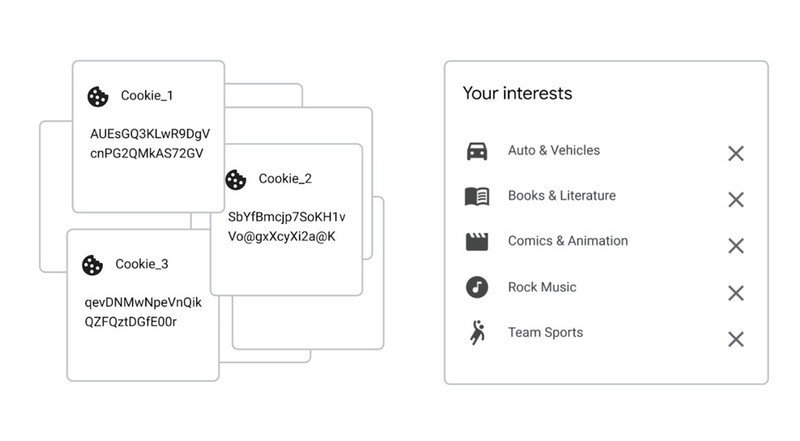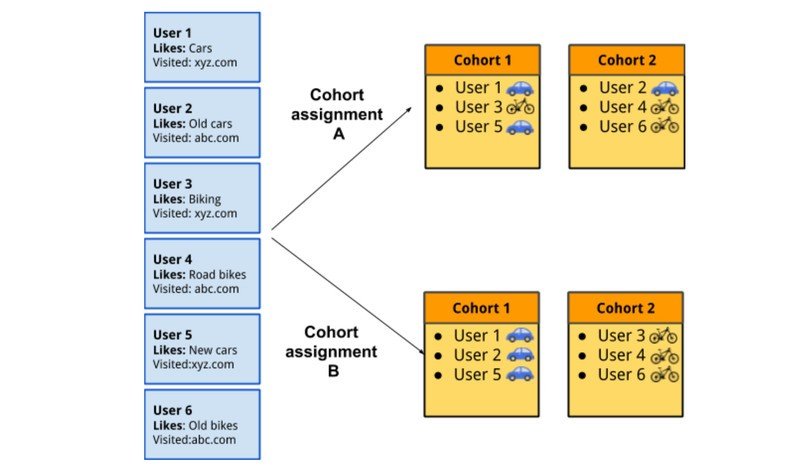Can Topics finally be the thing that kills third-party cookies?

Google has abandoned its controversial FLoC (Federated Learning of Cohorts) plans and now has a new idea that's supposed to bolster our privacy while on the web: Topics.
It's the next iteration of Google Chrome's Privacy Sandbox, and if we take the announcement at face value it is a much better option than the current wild-west of third-party tracking cookies that also addresses some of the concerns over the FLoC method that Google has trialed over the past year.
Of course, nobody is taking any of it at face value and nobody should.
What is the new Topics API?
After watching the video and reading through the technical notes about Topics, it sounds pretty simple.
A list of things you like is kept by your web browser that an advertiser can query so it knows what ads you're more apt to click on. We'll have some control over the list and can delete a topic, and the list itself only lives for a limited time before it gets rebuilt. In theory, this makes it harder for an advertiser to pinpoint who you are or keep its own running profile about you, but it would still be possible. It's going to be part of Chrome for both desktop and mobile, so you'll be able to try it on the best Android phones eventually.
Google also says there will never be topics about sensitive subjects like race or health information, and that lines up with its current practices as well as how FLoC was supposed to work. While not specifically mentioned, I assume that data from or about children is also excluded.

This is much different than a third-party advertising cookie. Cookies are a lot more intricate than they're made out to be. I am in no way an expert on building or using them, but I can describe how a third-party tracking cookie from an advertiser works from one layman to another.
Be an expert in 5 minutes
Get the latest news from Android Central, your trusted companion in the world of Android
Advertising cookies really do need to die.
You visit a site to read about bicycles. That website, usually through an advertising partner, places a cookie in your web browser's data files that says when you visited and for how long. Another site that knows where to look can access the data and knows you looked at a website focused on cycling.
It's pretty invasive tech and something really should be done about it, but it needs to be done the right way. Plenty of websites integrate cookies and tracking data in a way that blocking everything can make things dysfunctional. That's why you need to whitelist your bank's website in many popular internet security extensions or apps.
What happened to FLoC?

There were things both good and bad about Google's FLoC initiative, but in the end, it was rejected by the people it was designed to protect us against — internet advertisers.
There were other problems with FLoC, including the biggest issue that was probably impossible to solve — it was a Google initiative. When it comes to user privacy, nobody trusts Google. We have no reason to trust Google when it comes to our privacy because finding ways to learn more about us is why Google's parent company Alphabet is worth two trillion dollars.
I still believe that when done properly FLoC would give us more privacy while online than we have today and that having more privacy is always a good thing. I also think it's wrong that we have to choose at all and that the internet was able to be hijacked by advertisers as easily as it was. But I have no solution of my own to offer, so I write about it.
Google never said FLoC was a permanent change, and now it's gone.
In any case, FLoC is done, but it was considered a successful experiment inside the Privacy Sandbox. Topics is simply the next iteration of Google's initiative to give users more privacy while still being able to make a profit. Google knows that this is something it will need to figure out or someone else will figure it out for them, and that's probably not as good for the bottom line.
The jury is still out when it comes to Topics, but expect the usual suspects to start speaking out against the idea very soon. You should listen to both sides, too, because a better way to handle internet advertisers is sorely needed and someone will eventually come up with one. It could even be Topics.

Jerry is an amateur woodworker and struggling shade tree mechanic. There's nothing he can't take apart, but many things he can't reassemble. You'll find him writing and speaking his loud opinion on Android Central and occasionally on Threads.
